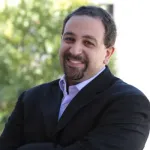Capturing Indigenous Knowledge to Co-Design more Effective Operations, Maintenance and Management of Water Infrastructure
A challenge for rural water infrastructure systems in the Arctic is how to operate, manage, and maintain them successfully. Operations, maintenance, and management (OMM) that ensures continuous water access is difficult in these remote areas for many reasons, such as limited access to technical resources and to training across a broad range of skills. Building local workforce capacity and training has been recommended to address this OMM gap. However, underlying these recommendations is the assumption that the knowledge used to build the water systems matches the local knowledge of people operating and interacting with said systems. In rural Alaska, this is not always the case. This project seeks to bridge this gap between expected engineering know-how and the actual know-how of the local community. The approach supports local operators through developing water system OMM training material that is better grounded in local knowledge. At a systems scale, the project also develops educational material describing rural Alaskan water systems, aimed at educating the non-technical user community more broadly. Through bridging the connection between engineering and social context, this project empowers and broadens participation of the current and potential future engineering workforce.
This collaborative project aims to develop operator workforce resources for better provision of water supply services in Arctic regions. Beginning in 2021-2022 a field team of 3+ will travel to the Alaskan communities of Bethel and surrounding villages to engage in semi-structured interviews with people living in there, as well as hold public focus groups.
Season Field Sites:
2022 Alaska - Bethel
Resources
Integrating Indigenous Knowledge to Co-Design more Effective Operations, Maintenance, and Management of Water Infrastructure in the Arctic
Rural Alaskan communities experience significant challenges in developing and operating water and sewer infrastructure systems. Their remote location, freezing temperatures, and regulatory hurdles often inhibit their ability to provide adequate water services. Moreover, engineered water systems are sometimes designed without using local knowledge and experience. Finally, training and certification requirements are often unreasonable and not suited to the local population, creating a gap in the local workforce.

